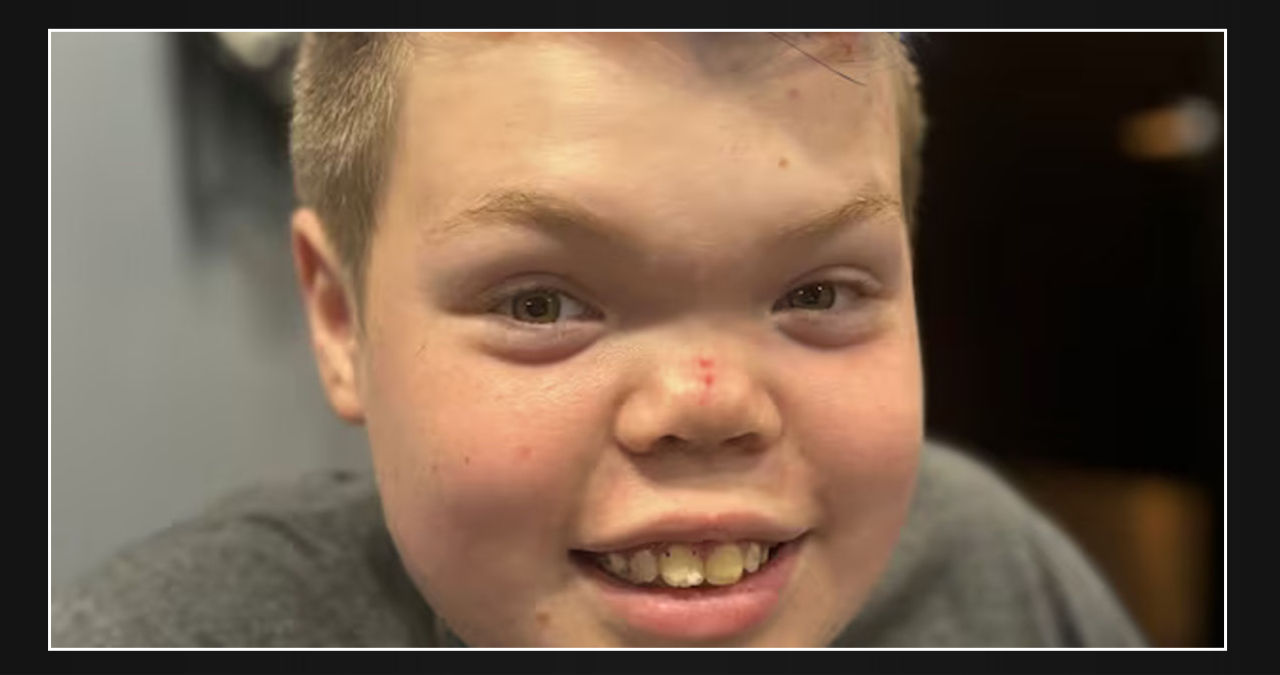When Tiem Strouse was born in St. Petersburg in 2013, he appeared to be a completely healthy baby boy.
When he turned 13 months old, his development suddenly came to a halt, according to Liz Strouse, the child’s mother. The baby words that once flowed easily from his mouth ceased entirely. Liz also noticed that he only walked on the balls of his feet and would spin aimlessly at times. To add to her worry, he seemed to be experiencing night terrors.
When he was first evaluated, the initial specialist mistakenly diagnosed him with Down’s Syndrome. This marked the beginning of a five-year long journey for his parents to uncover the true cause of their son’s developmental issues. The search finally came to a close when a genetic test confirmed that he had a neurodevelopmental genetic disorder, which was a result of mutations in the ADNP gene.
Children with rare genetic diseases often go through a challenging journey to get an accurate diagnosis, leaving their parents in anguish. This journey is known as the diagnostic odyssey, and it can take an average of over five years, involving numerous expensive medical tests and consultations with perplexed specialists. Moreover, the diagnostic odyssey can become more challenging as certain private insurance providers do not cover some genetic tests. Tiem’s experience is, unfortunately, all too common for families going through this process.
In the last couple of years, Florida has implemented measures to simplify the journey for families dealing with rare diseases. A bill passed in 2023 allocated funds for Florida’s Medicaid program to cover the cost of whole genome sequencing, which can amount to over $6,000. Additionally, the Andrew John Anderson Pediatric Rare Disease Grant Program received permanent funding this year, which will support research on rare pediatric illnesses.
Representative Adam Anderson, a Republican from Palm Harbor, was among those who supported the proposed legislation. The initiative is named after his late son, who passed away at the age of four due to Tay-Sachs disease. This uncommon genetic ailment results in seizures, paralysis, and loss of vision and hearing. Adam’s son experienced severe seizures for a long time and was misdiagnosed numerous times before the root cause was finally identified when the boy was 15 months old, according to Anderson.
“He said that such a belief had ignited his passion and sparked his interest in delving deeper into the field. He further added that genetics, in general, along with testing and gene therapies, holds immense potential and will play a significant role in shaping the future of medicine.”
Anderson advocated for the allocation of $1 million in state funds to establish the Institute for Pediatric Rare Diseases at Florida State University. She also plans to introduce legislation in the future that would make genetic testing available to all newborns.
According to the speaker, there is evidence supporting genome testing for newborns in need of neonatal intensive care. This evidence comes from a pilot program conducted by Nicholas Children’s Hospital in Miami. The program, called Baby Manatee, involved genome testing for 50 infants. A report on the project from 2020 revealed that 23 rare genetic conditions were identified in the infants who were tested. As a result, changes were made to the care provided to 19 of these infants.
According to the report, an estimated $2.8 million was saved due to the prompt diagnosis and elimination of unnecessary medical tests and treatments.
Tiem, who currently resides in Orlando, received his diagnosis through whole exome sequencing instead of whole genome sequencing.
GeneDx, a Maryland-based company, conducted the test on Tiem and his mother’s saliva samples collected from mouth swabs. The test cost was significantly lowered to approximately $400 by the company. Unfortunately, Tiem’s father could not undergo the test as he had passed away a few months prior.
According to Ashley Arthur, the vice president of market access at GeneDx, genetic testing can reveal more than just rare diseases. Conditions like autism and cerebral palsy can also be connected to genetic markers.
Florida lawmakers were lobbied by GeneDx to include genome testing in Medicaid coverage.
Arthur expressed that their ultimate goal is to demonstrate the importance of testing newborns right after birth. This is the vision for the future.
According to Tiem’s mother, accepting the diagnosis of Helsmoortel-Van Der Aa syndrome, also known as ADNP syndrome, was not easy at first. However, it provided her with a clear path to help her son lead a life as close to normal as possible.
Upon realizing that her son may have dwarfism in his hands and feet, the mother sought the expertise of an orthopedic specialist. Through their collaboration, they were able to identify physical therapy that would postpone any necessary corrective surgery until the child reaches adulthood. Additionally, the specialist discovered minor cardiac abnormalities in the child’s heart that had previously gone undetected.
After experiencing night terrors, it was discovered that he was actually having seizures. The exome testing provided valuable information regarding his seizure activity, which enabled his neurologist to determine the most effective medication for prevention.
It has been over two years since Tiem, who is now 11, experienced any seizures.
Tiem’s active lifestyle includes attending regular school, dance classes, painting, karate, and even learning to play the ukulele. Thanks to targeted care, Tiem is able to participate in all these activities with ease.
She expressed her sadness about her son’s condition but found hope in the checklist provided. According to her, working on the checklist together gave her the confidence to change her son’s future. She believes that the checklist will help her son’s future become brighter than she had initially thought.
Medical literature and reports from the ADNP Kids Research Foundation have only identified 205 affected children worldwide as of 2019. However, Liz Stouse was able to find solace in an online network of parents who share the same anxieties, thanks to Tiem’s diagnosis.
She said, “I don’t have to go through this alone.”



